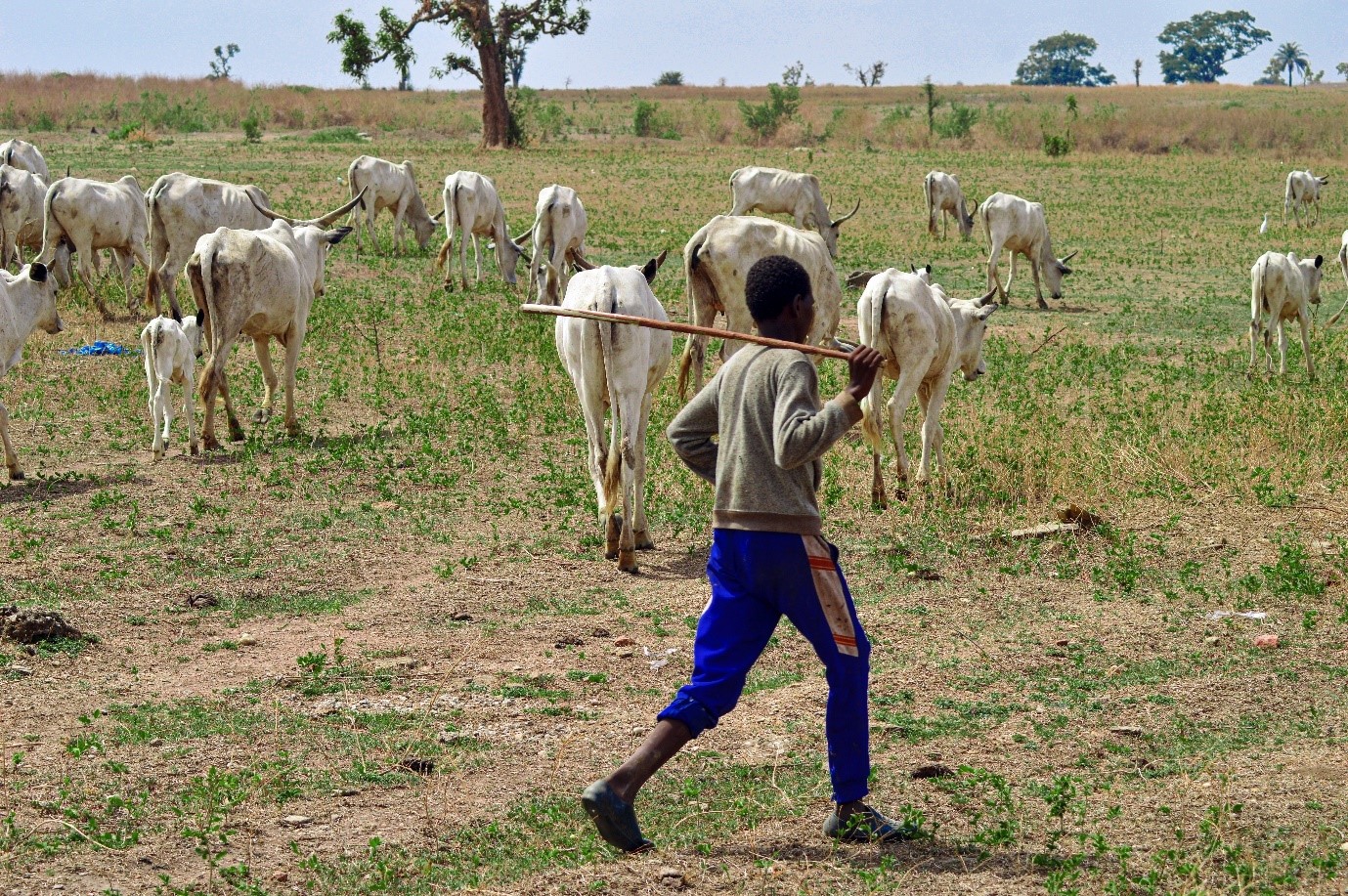By Isaac Atunlute
Last July, when cattle reportedly trampled maize, cassava, plantain, vegetables, and yams worth more than ₦20 million in Ipogun, a farming community in Ondo State, the damage was not only economic.
The episode reignited tensions between herders and farmers, a long-drawn-out crisis that has cramped food production in Ondo State.
Farmers like Tunde Fawoyi and Adefila Solomon, who have invested considerable labour and capital into their farms, described the event as “devastating.”
They have raised calls for compensation and preventive measures against further incidents.
In response, the state has promised to collaborate with the Amotekun security corps to investigate the raiding incident and bring the culprits to book.
The Ondo incident is the latest case of farmer–herder conflicts that repeatedly erupt in farming regions across the country.
An increasing number of regions are working to reduce the frequency of these conflicts through a slew of proven methods that pose no damage to the livelihood of either group.
Start with the establishment of community peace committees, bringing farmers and herders under one table.
In Taraba and Adamawa States, such committees hold regular meetings to decide on grazing routes, harvest periods, and compensation mechanisms in the event of accidental damage.
These agreements prevent conflicts between the two groups from escalating.
An adoption of the same discussion forums in Ondo’s agricultural landscape can restore peace and trust in previously tense communities.
Grazing reserves have also been a successful model in other states. Nasarawa, for example, has established grazing reserves with water points and feed stores. There are also veterinary units, which allow animals to be kept within enclosures, preventing them from tromping on locals’ farms.
Although grazing reserves are capital-intensive projects, Ondo could explore a phased model, starting in the most vulnerable LGAs and gradually expanding to all areas in the state.
Technology also offers an extra level of security. MTN Nigeria previously launched an ICT-driven solution capable of GPS tracking and geo-fencing to help herders manage cattle and avoid farm encroachment.
In cases where animals are seen taking the path to farms, community watch groups can be quickly mobilised, forestalling damage before it happens.
Outside of Nigeria, there are insights to draw from neighbouring countries. In Kenya, livestock registration and periodic check-ups facilitated easy tracking of their owners during a case of herd damage.
These approaches demonstrate why conflict is best prevented when land-use planning is backed by enforceable agreements.
What has occurred in Ipogun isn’t an isolated case—it’s a pattern manifesting all over Nigeria, where climate change, deforestation, and a surging population are shrinking nature’s resources and fuelling tensions.
The line between conflict and coexistence is often one of whether or not societies have the structures, compacts, and rapid response mechanisms to settle disputes.
And if Ondo transitions from crisis response to acting preventively, that serves to secure the livelihoods of its farmers as much as to establish food security and rural stability.
Achieving cordiality between pastoralists and farmers is within reach—but it must be forged through dialogue, planning and shared responsibility.
In July, over ₦20 million worth of crops were destroyed in Ipogun, Ondo State, due to cattle trampling, reigniting tensions between herders and farmers. This incident highlights a persistent farmer-herder conflict that undermines food production in the region. Farmers are demanding compensation and measures to prevent further occurrences. The state, alongside the Amotekun security corps, is investigating this to bring offenders to justice.
Several regions in Nigeria have adopted solutions to mitigate these conflicts, such as community peace committees that regulate grazing and compensation mechanisms. Ondo could benefit from adopting similar strategies, as seen in Taraba and Adamawa. Grazing reserves, like those in Nasarawa, and technology-driven solutions like GPS cattle tracking, may also help prevent such conflicts. Additionally, neighbouring countries like Kenya offer insights into effective livestock management and conflict prevention.
With challenges like climate change and population growth exacerbating resource scarcity, Ondo has the potential to move from reactive to proactive conflict management through structured dialogue, planning, and shared responsibilities. Establishing frameworks for coexistence between farmers and herders could enhance food security and rural stability.






